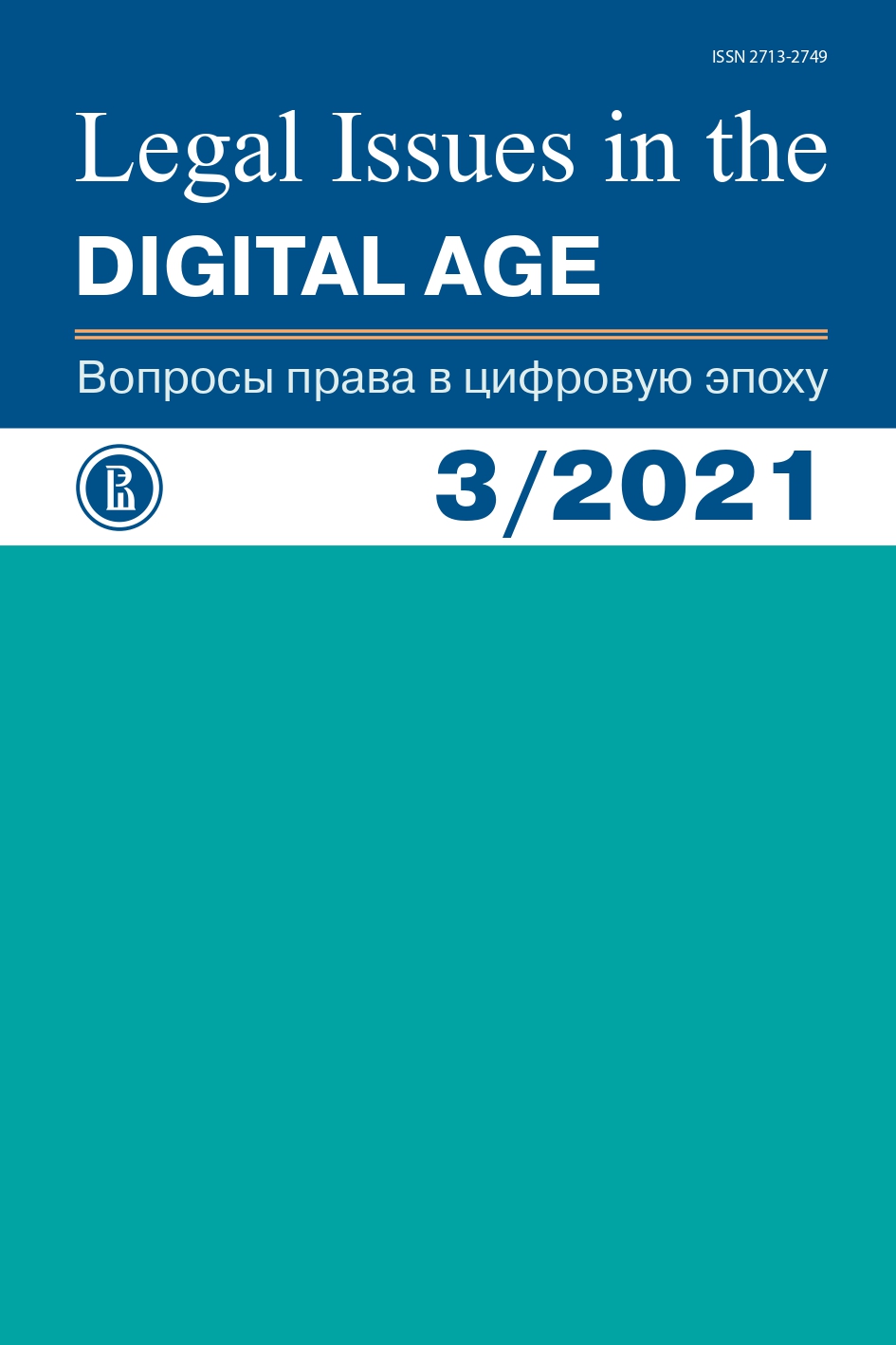COVID-19: Legal Regulation of Universal Vaccination
Abstract
The topic of this article is relevant, first of all, due to the fact that at the moment it is objectively impossible to deny the acquisition of the COVID-19 pandemic and its consequences as a kind of main indicator of socio-economic processes and a mechanism for legitimizing the state system of regulation and management in
covid and post-covid conditions. The subject of the article is the legal regulation of mandatory vaccination against COVID-19. The purpose of the study is to identify the problems of legal regulation of the process of mandatory vaccination against COVID-19 through the prism of the human right to health protection and medical care in the system of universal values. This research is based on a combination of groups of general scientific methods (induction, deduction, analysis, synthesis) and special methods of legal science (formal legal, comparative legal and others). The authors carried out a conceptual analysis of the human right to health protection and medical care in the context of domestic law, as well as administrative and legal aspects of mandatory vaccination against COVID-19 based on the analysis of the generalized experience of two macro-regions of Moscow and the Moscow region. According to the results of the study, the authors come to the following key conclusions: firstly, the chief state sanitary doctor of the subject of the Russian Federation has an objective right dictated by the norms of domestic legislation to issue an executive-executive-administrative act on the mandatory vaccination in a pandemic; secondly, the employer is obliged to suspend from work (not to hire) citizens who refused vaccination only if it is a question of works named in the List of works, the performance of which is associated with a high risk of infectious diseases. Such measures cannot be applied to employees performing other types of work; thirdly, failure by an organization/individual entrepreneur to comply with resolution of the chief state sanitary doctor entails appropriate measures of legal responsibility provided for by the norms of the current legislation of the Russian Federation.
References
Caitlain L. (2020) Legal Issues Related to the COVID-19 Outbreak: An Overview. Available at: https://crsreports.congress.gov (accessed: 29.08.2021)
Hans-Uwe S., Alexander K., Martin B. (2020) Strategies to Prevent SARS-CoV-2-Mediated Eosinophilic Disease in Association with COVID-19 Vaccination and Infection. International Archives of Allergy and Immunology, no 8, pp. 1–5. https://doi.org/10.1159/000509368
Kevin H., Erin W. (2020) Legal Issues in COVID-19 vaccine development. Available at: https://crsreports.congress.gov (accessed: 29.08.2021)
Kharchenko E.P. (2021) Vaccines against COVID-19: Comparisons, Limitations, Waning of the Pandemic and Prospects of Viral Respiratory Infections. Epidemiologiya i vaktsinoprofilaktika =Epistemiologia and Vaccinoprophilaktika, vol. 20, no. 1, pp. 4–19. (In Russ.).
Lastovetsky A.G., Kitanina K.Yu., Khromushin V.A. (2019) Evaluating the Performance of Healthcare Institutions and Healthcare Management Agencies. Vestnik nevrologii, psikhiatrii i neyrokhirurgii=Herald of Neurogy, Psyhiatry and Neurohirurgy, no 2, pp. 76–80. (In Russ.).
Luparev E.B., Epifanov E.V. (2021) Public Healthcare Law. Krasnodar: University, 191 p. (In Russ.).
Lukhtenkova Ya.S. (2018) Constitutional Right of Individuals for Medical Care and its Realization. Molodoy uchenyy =Young Researcher, no. 2, pp. 186–188. (In Russ.).
Maltezou C., Androula P., Athanasios T. (2021) Post-COVID Syndrome: An Insight on its Pathogenesis. Vaccines, no 9, pp. 1–12.
Medvedeva O.V., Afonina N.A., Draenkova F.R. (2017) The Legal Regulatory Framework for Social Protection of Disabled Person of Employable Age. Problemy sotsial’noy gigieny, zdravookhraneniya i istorii meditsiny = Social Hygiene, Healthcare and History of Medicine, no. 1, pp. 20–22. (In Russ.).
Mironova O.A. (2018) The Right to Health Protection: A Constitutional Dimension. Uchenye zapiski Krymskogo federal’nogo universiteta = Transactions of Crimean Federal University, vol. 4, no. 4, pp. 105–111. (In Russ.).
Ramona B. (2020) Capturing the Experiences of Samoa: The Changing Food Environment and Food Security in Samoa during the COVID-19 Pandemic. Oceania: a journal devoted to the study of the native peoples of Australia, New Guinea, and the Islands of the Pacific, no. 90, pp.116–125.
Savoshchikova E.V., Gurnaya L.E. (2018) Health Protection and Medical Care as a Constitutional Right of Individuals. Prodvinutayanauka = Advanced Science, no. 2, pp. 217–221. (In Russ.).
Sivochalova O.V., Lineva O.I. et al. (2017) Protection of Reproductive Health and Family Planning. Moscow: INFRA-M, 326 p. (In Russ.).
Sokolova N.V. (2018) Issues of Ensuring Constitutional Right to Life and Health Protection in Russia and how to Address them. Uchenye zapiski Krymskogo federal’nogo universiteta = Transactions of Crimean Federal University, vol. 4, no. 2, pp. 88–94. (In Russ.).
Surovenko T.N., Glushkova E.F. (2021) Vaccinating against Flu During the COVID-19 Pandemic. Poliklinika = Clinic, no. 1, pp. 70–77. (In Russ.).
Tuchkova E.G. (2017) Basics of the Right to Social Security. Moscow: Prospekt, 416 p. (In Russ.).
Authors who publish with this journal agree to the Licensing, Copyright, Open Access and Repository Policy.










